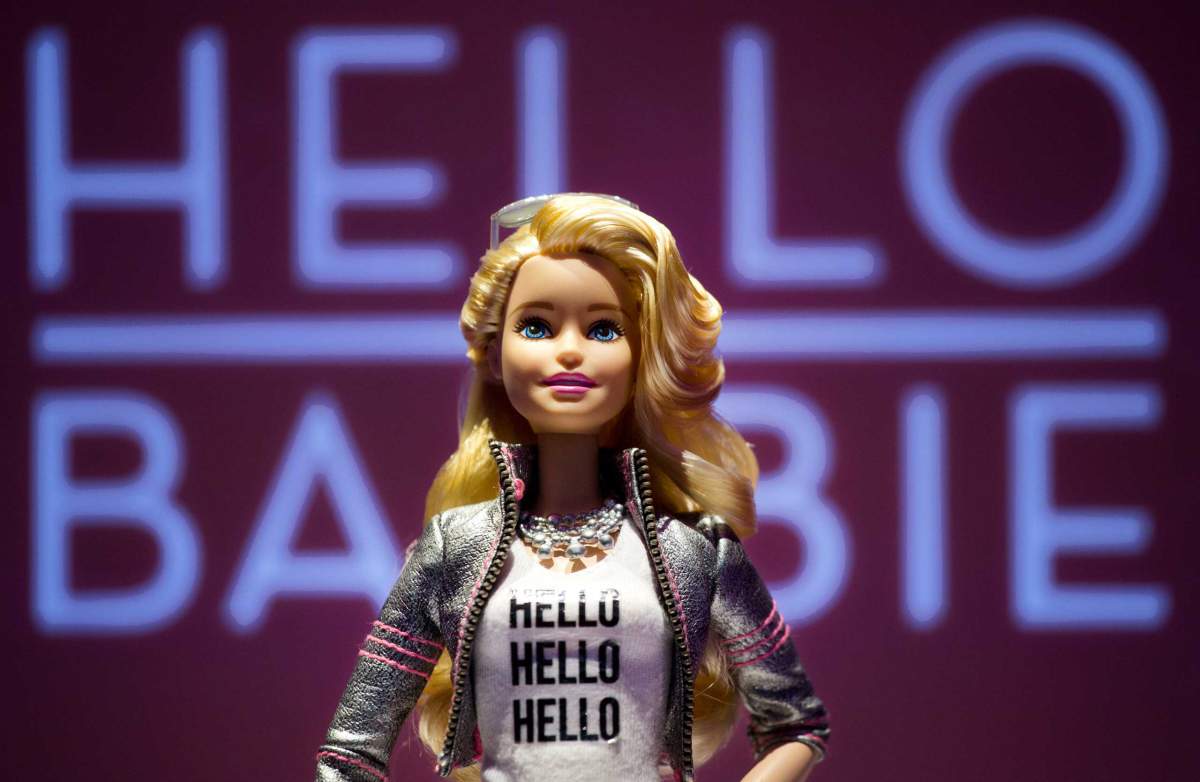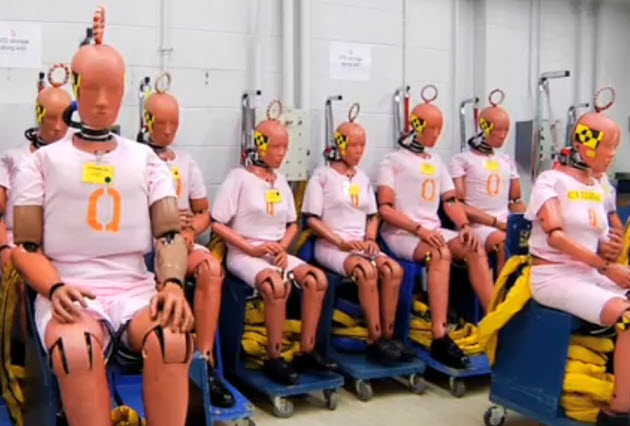The future often arrives wearing the clothes of the past, even if they’re Purrfectly Pink! fashions.
Mattel wants to introduce AI to children via Barbie who will be their “perfect friend.” I’m not speaking of a Freeman Dyson-ish future of genetically-modified playthings that are actually alive, of course, but a convincingly conscious toy that utilizes Siri-esque speech-recognition software to not only talk but to also listen.
The dream of animating dolls is nothing new, as pull-strings, sleight of hand and psychological needs have long helped us “awaken” them. But what will it mean when a profound simulacrum becomes part of children’s lives? My guess is kids, those ingenious creatures, will adapt and adjust to the elaborate ruse in most ways, but the information potentially pushed upon them and extracted from them will be troubling.
From James Vlahos’s fascinating New York Times Magazine article “Barbie Wants to Get to Know Your Child“:
In the past five years, breakthroughs in artificial intelligence and speech recognition have given the devices around us — smartphones, computers, cars — the ability to engage in something approaching conversation, by listening to users and generating intelligent responses to their queries. Apple’s Siri and Microsoft’s Cortana are still far from the science-fiction promise of Samantha from the movie Her. But as conversational technology improves, it may one day rival keyboards and touch screens as our primary means of communicating with computers — according to Apple, Siri already handles more than a billion spoken requests per week. With such technology widely available, it was inevitable that artificial intelligence for children would arrive, too, and it is doing so most prominently in the pink, perky form of Mattel’s Hello Barbie. Produced in collaboration with ToyTalk, a San Francisco-based company specializing in artificial intelligence, the doll is scheduled to be released in November with the intention of hitting the lucrative $6 billion holiday toy market.
For adults, this new wave of everyday A.I. is nowhere near sophisticated enough to fool us into seeing machines as fully alive. That is, they do not come close to passing the ‘‘Turing test,’’ the threshold proposed in 1950 by the British computer scientist Alan Turing, who pointed out that imitating human intelligence well enough to fool a human interlocutor was as good a definition of ‘‘intelligence’’ as any. But things are different with children, because children are different. Especially with the very young, ‘‘it is very hard for them to distinguish what is real from what is not real,’’ says Doris Bergen, a professor of educational psychology at Miami University in Ohio who studies play. The penchant to anthropomorphize — to believe that inanimate objects are to some degree humanlike and alive — is in no way restricted to the young, but children, who often favor magical thinking over the mundane rules of reality, have an especially rich capacity to believe in the unreal.
Hello Barbie is by far the most advanced to date in a new generation of A.I. toys whose makers share the aspiration of Geppetto: to persuade children that their toys are alive — or, at any rate, are something more than inanimate.•


